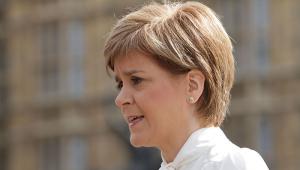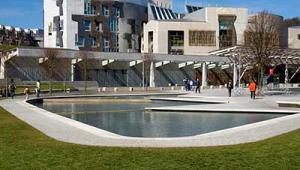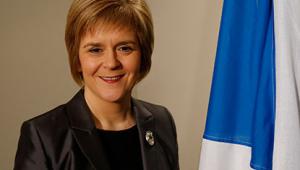In a speech in Stirling today, she announced that all 120,000 members of the Scottish National Party would be sent a pack of survey cards to collect the views of five people each per month between now and St Andrew’s Day on 30 November.
Since June’s EU referendum, Sturgeon has said the disparity between the outcome in Scotland – where 62% voted Remain – and that in the rest of the UK had put the prospect of a new independence referendum back on the table because it represented a fundamental change of circumstance since the 55-45 No vote in September 2014.
In recent years, the SNP has tightened its grip on Scottish politics in elections for Westminster and Holyrood, and early polls after the Brexit vote registered a narrow majority of Scottish voters backing independence, although later polls have recorded more ambivalence.
Scotland’s public finances are likely to prove a central issue for the SNP’s “listening”, however. The collapse in international oil prices has caused a dramatic slow-down in the Scottish oil and gas industry, with a resulting fall in oil revenues that translated into a notional Scottish deficit of £15bn in last month’s annual GERS (Government Expenditure & Revenue Scotland) figures.
Sturgeon is also known to be anxious to address some perceived weaknesses in the 2014 Yes prospectus, most notably over the currency an independent Scotland would use, ahead of any new referendum or IndyRef2 as it has become known.
Her opponents, meanwhile, insist that the question is settled and that the first minister should “get on with her day job” of addressing economic and other policy challenges.
“If she was really listening, she would know that most of us don’t want to go back to another divisive referendum debate,” Scottish Tory Leader Ruth Davidson said today.
“We want Scotland to move on.”
Sturgeon remains conspicuously cautious about being pushed into a fresh referendum, knowing that it would be hard to row back from a second defeat.
But she insisted today that the Brexit vote had shown that Scotland within the union would always suffer the “democratic deficit” of being vulnerable to decisions taken elsewhere. “While I take nothing for granted, I suspect support for independence will be even higher if it becomes clear that it is the best, or the only, way to protect our interests."
Alongside the canvassing drive by SNP members, the party’s elected officials have been told to organise “town hall” meetings, and a new commission will analyse Scotland’s changed economic and financial circumstances with a view to refreshing policy.
“All in all, we plan to talk to at least two million people across Scotland between now and 30 November,” Sturgeon said. “The wealth of information and insight we gather will then inform the next stage of our campaign.”




















